Energy sector
On the Lao Dong Newspaper, there is an article : " Proposing additional policies to sell surplus electricity for small-scale rooftop electricity"
The Vietnam Energy Association proposed that there should be more incentive policies for selling surplus electricity to small-scale rooftop solar power projects.
Recommendations on developing rooftop solar power in particular and renewable energy in general were raised at the Vietnam Energy Forum 2025 chaired by the Vietnam Economic Science Association, the Vietnam Clean Energy Association, and in coordination with the Vietnam Economic Magazine on the afternoon of March 31.
Import and export sector
In the newspaper Nguoi Lao Dong, there is an article : " Exporting fruits and vegetables: Must consider the long term"
Without a long-term strategy to improve the production chain and product quality to meet partners' requirements, fruit and vegetable exports will find it difficult to achieve their goals.
Vietnam's fruit and vegetable exports have continuously decreased in the first 3 months of this year. Photo: AN NA |
According to preliminary statistics from the Vietnam Fruit and Vegetable Association (Vinafruit), in March 2025, fruit and vegetable exports reached nearly 421 million USD, down 10.5% over the same period last year and the third consecutive month of decline in exports of this item. In the first 3 months of the year, fruit and vegetable exports reached 1.1 billion USD - down 13.2% over the same period.
On the news aggregator CafeF there is an article: "Considering the proposal to manage the import of bitcoin mining machines".
The Import-Export Department (Ministry of Industry and Trade) has just proposed that the Ministry of Finance soon take the lead in coordinating with relevant ministries and branches to study the classification and apply specific HS codes for bitcoin mining machines to have a basis for considering and proposing appropriate import management measures.
E-commerce sector
The An ninh Thu do newspaper published the information: "Application of AI in production: How have Vietnamese enterprises implemented it?"
AI (artificial intelligence) has been applied in many Vietnamese manufacturing industries in processes and products. This is considered the driving force for innovation and development of enterprises.
Speaking at the seminar “Application of AI in production: Driving force for innovation and development” held on the morning of March 31, Mr. Hoang Ninh - Deputy Director of the Department of E-commerce and Digital Economy (Ministry of Industry and Trade) - said that the application of AI in production in Vietnam is becoming more and more popular, helping businesses improve productivity, optimize processes and reduce waste. A number of industries and sectors in industry and trade have successfully applied AI.
For example, in the textile industry, typically Vinatex, AI is used to optimize production processes, manage supply chains and forecast production, business and market demand. Thanks to that, Vinatex has reduced production time by 30%, increased accuracy and reduced waste.
In the footwear industry, AI supports model design, market trend analysis and production line automation.
On Ho Chi Minh City Law Newspaper there is an article: "How should Vietnam tax cryptocurrencies?"
Dr. Chu Thanh Tuan, RMIT University, said that if a reasonable tax mechanism is applied, Vietnam can generate significant budget revenue from this market.
One effective approach is to tax transactions at a low rate, similar to that of securities transactions. According to estimates by the Vietnam Blockchain Association, imposing a 0.1% tax on each cryptocurrency transaction could generate more than $800 million per year without disrupting market operations.
In addition to transaction taxes, the government may also consider imposing personal income tax on profits from cryptocurrency investments, or corporate income tax on companies operating in this field.
If cryptocurrencies are classified as investment assets, profits from trading could be taxed the same way as stocks or real estate. Cryptocurrency businesses could also be taxed at the same 20% rate as traditional businesses.
Another potential source of revenue for the government is licensing fees for cryptocurrency exchanges. Several countries have implemented this model, such as Dubai, where cryptocurrency projects are required to pay licensing fees.
If Vietnam adopts a similar system, the government could both control the market and generate non-tax revenue.
Domestic market sector
On dantoc.vn newspaper there is an article: "Building a brand for mountainous agricultural products"
Currently, many products of ethnic minority and mountainous areas (EM&MN) have been invested in the direction of commodity production, building product brands associated with cultural traditions and production practices. This makes them attractive in the eyes of modern consumers. Many products have become local strengths and are consumed in distribution and export channels. In addition to focusing on directing and supporting the development of production according to the value chain, in recent times, ministries, branches and localities have accompanied farmers in building agricultural product brands to promote and reach out to larger markets.
Dai Doan Ket newspaper published an article : "Reviving purchasing power for traditional markets - Part 1: Lack of customers and gradually 'losing points'"
In contrast to the hustle and bustle of the past, the image of deserted traditional markets with few customers is a sad reality today. According to economic experts, if the infrastructure is not renewed and upgraded as well as modern business methods are not updated, traditional markets will not be able to restore purchasing power.
Competition and consumer protection
VnExpress newspaper published information: "China takes strong action against electric vehicle dumping"
The executive said that electric car companies that compete unfairly, provide false information and give unreasonable discounts will be dealt with severely.
China has just made commitments to increase supervision of the domestic electric vehicle market to limit price dumping, as well as promote the overall development of the industry, when currently only three domestic electric vehicle manufacturers are profitable.
Zheng Bei, deputy director of the National Development and Reform Commission, China's economic planning agency, said at the China EV 100 forum in Beijing a few days ago that companies engaging in unfair competition will be punished if their discounts are deemed unreasonable. Unfair competition practices also include disclosing false information that misleads customers and smear campaigns against rivals. Zheng did not elaborate on the penalties.
The statement came after Cui Dongshu, secretary general of the China Passenger Car Association (CPCA), told the forum that the association raised its forecast for electric vehicle sales in China by 3.5% to 16.1 million vehicles this year, with domestic sales accounting for more than 60%.
China’s electric vehicle market is now home to around 50 companies, large and small, ranging from the world’s largest EV maker BYD to Stellantis-backed startup Leapmotor. Most are losing money because of a prolonged price war. According to industry data, only three Chinese companies are profitable: BYD, Li Auto and Aito.
Last year, 227 electric and gasoline-powered models in China saw price cuts, compared with 148 in 2023. In 2022, only 95 models saw price cuts. The average selling price of electric vehicles in the market fell by $3,352 to $31,000 in December 2024, according to the CPCA. Customers who switch to an electric vehicle will receive a $2,755 cash rebate, compared with $2,066 for conventional vehicles.
Wang Qing, deputy director of the Institute of Market Economy under the Development Research Center of the State Council, told the forum that the subsidies could boost auto sales by 500,000 to 1 million units this year. He predicted that deliveries of electric vehicles could reach 17 million units by 2025, 5.6 percent higher than the CPCA’s forecast.
However, the electric vehicle industry in the country of one billion people is facing a situation of overcapacity after the US and Europe imposed punitive tariffs to limit imports of Chinese-made vehicles. According to Goldman Sachs, Chinese electric vehicle companies have the capacity to produce about 20.2 million units a year. However, last year, only half of that capacity was reached.
Saigon Economic Magazine published an article : "Certification label: Solution to strengthen consumer trust".
In a fiercely competitive environment, certification marks (CMT) not only protect consumers but also help businesses affirm quality and enhance brand position. When properly implemented, CMT will become a solid shield against poor quality goods, contributing to promoting sustainable economic development.
Industry and Trade Newspaper
Source: https://congthuong.vn/tin-cong-thuong-14-tinh-duong-dai-cho-xuat-khau-rau-qua-380982.html


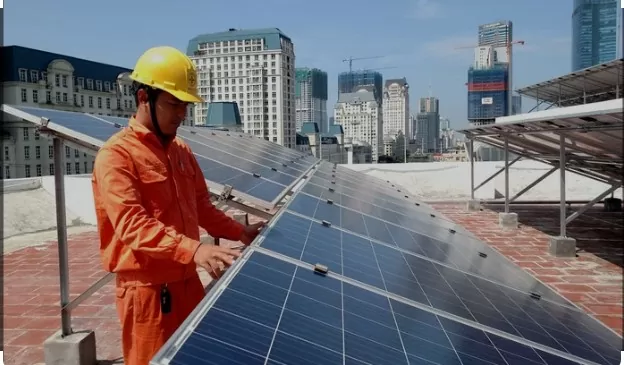
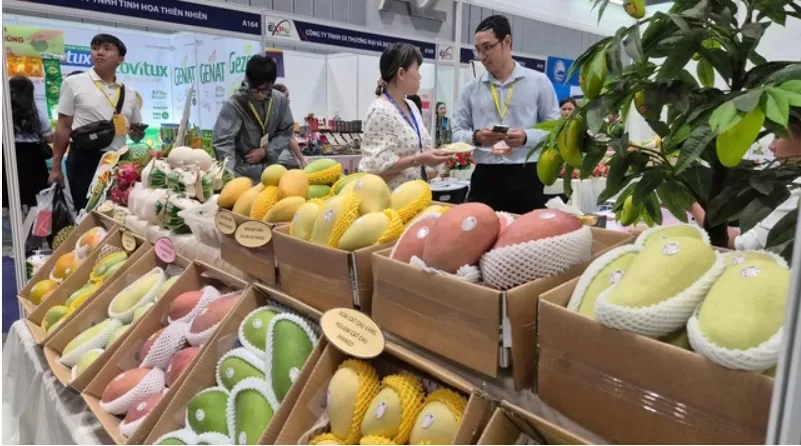
![[Photo] Special relics at the Vietnam Military History Museum associated with the heroic April 30th](https://vstatic.vietnam.vn/vietnam/resource/IMAGE/2025/4/3/a49d65b17b804e398de42bc2caba8368)
![[Photo] Prime Minister Pham Minh Chinh receives CEO of Standard Chartered Group](https://vstatic.vietnam.vn/vietnam/resource/IMAGE/2025/4/2/125507ba412d4ebfb091fa7ddb936b3b)


![[Photo] Prime Minister Pham Minh Chinh receives Deputy Prime Minister of the Republic of Belarus Anatoly Sivak](https://vstatic.vietnam.vn/vietnam/resource/IMAGE/2025/4/2/79cdb685820a45868602e2fa576977a0)
![[Photo] Comrade Khamtay Siphandone - a leader who contributed to fostering Vietnam-Laos relations](https://vstatic.vietnam.vn/vietnam/resource/IMAGE/2025/4/3/3d83ed2d26e2426fabd41862661dfff2)
![[Infographic] Cross exchange rates of Vietnamese Dong with some foreign currencies to determine taxable value from April 3-9](https://vstatic.vietnam.vn/vietnam/resource/IMAGE/2025/4/3/29a48fd80b3b46a0963e6449698a292b)
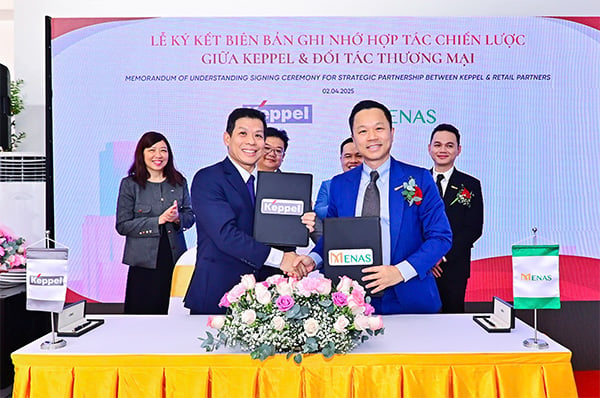

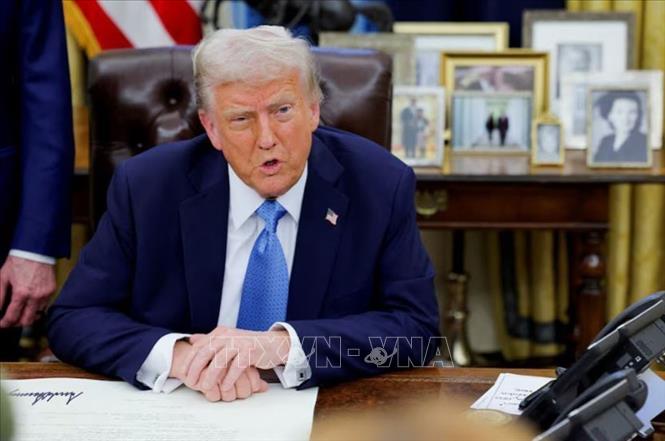






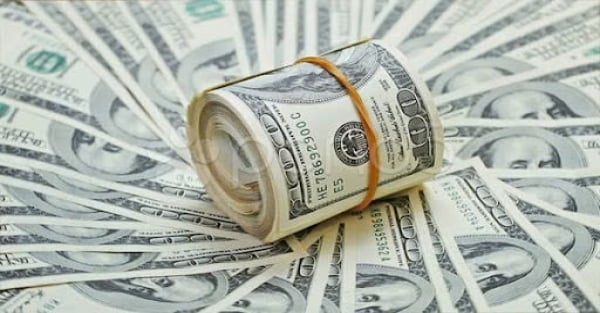

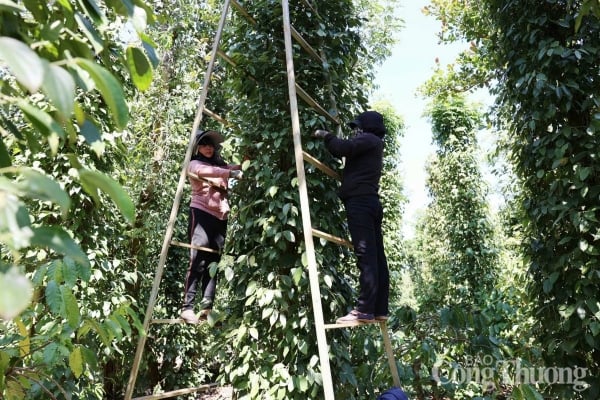
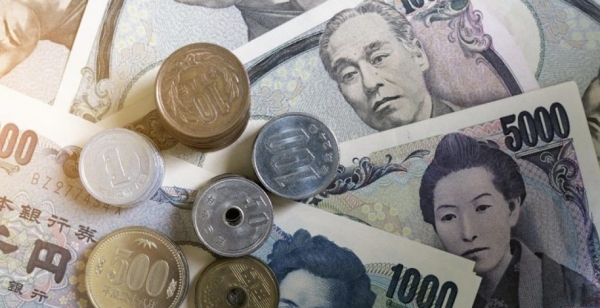




































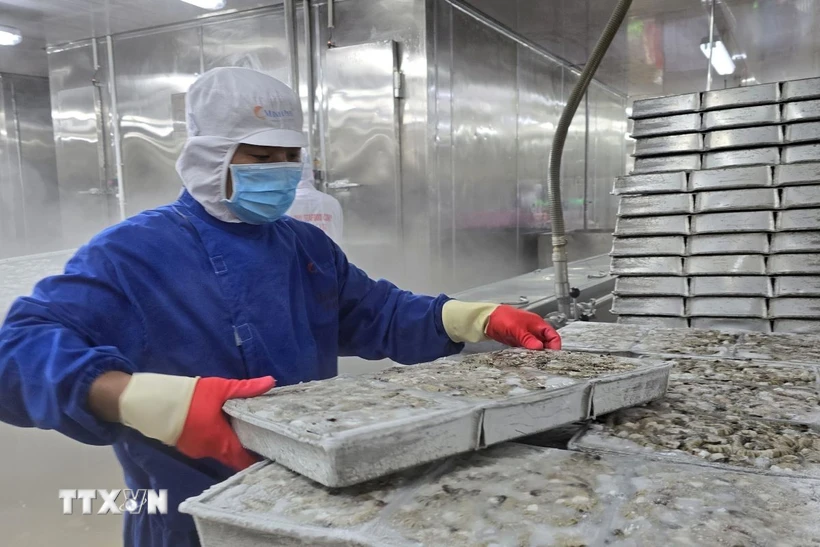

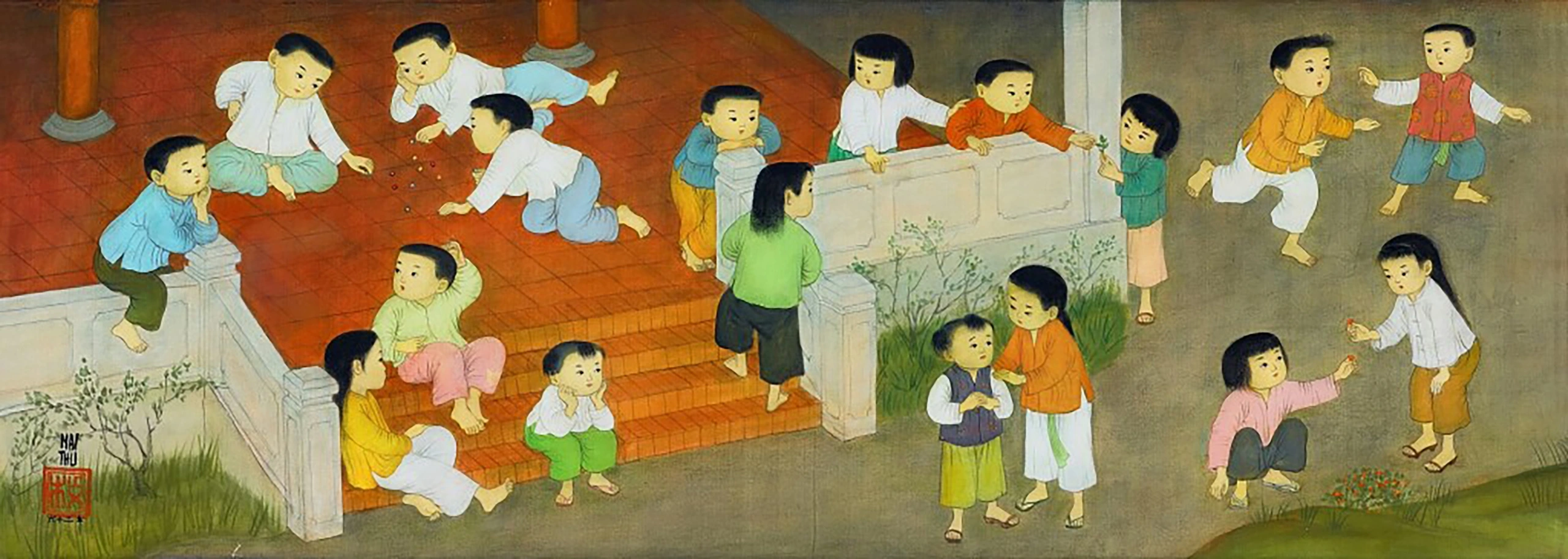











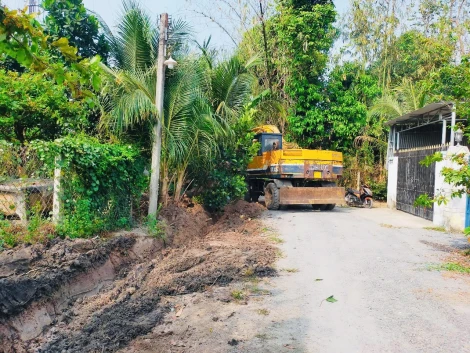




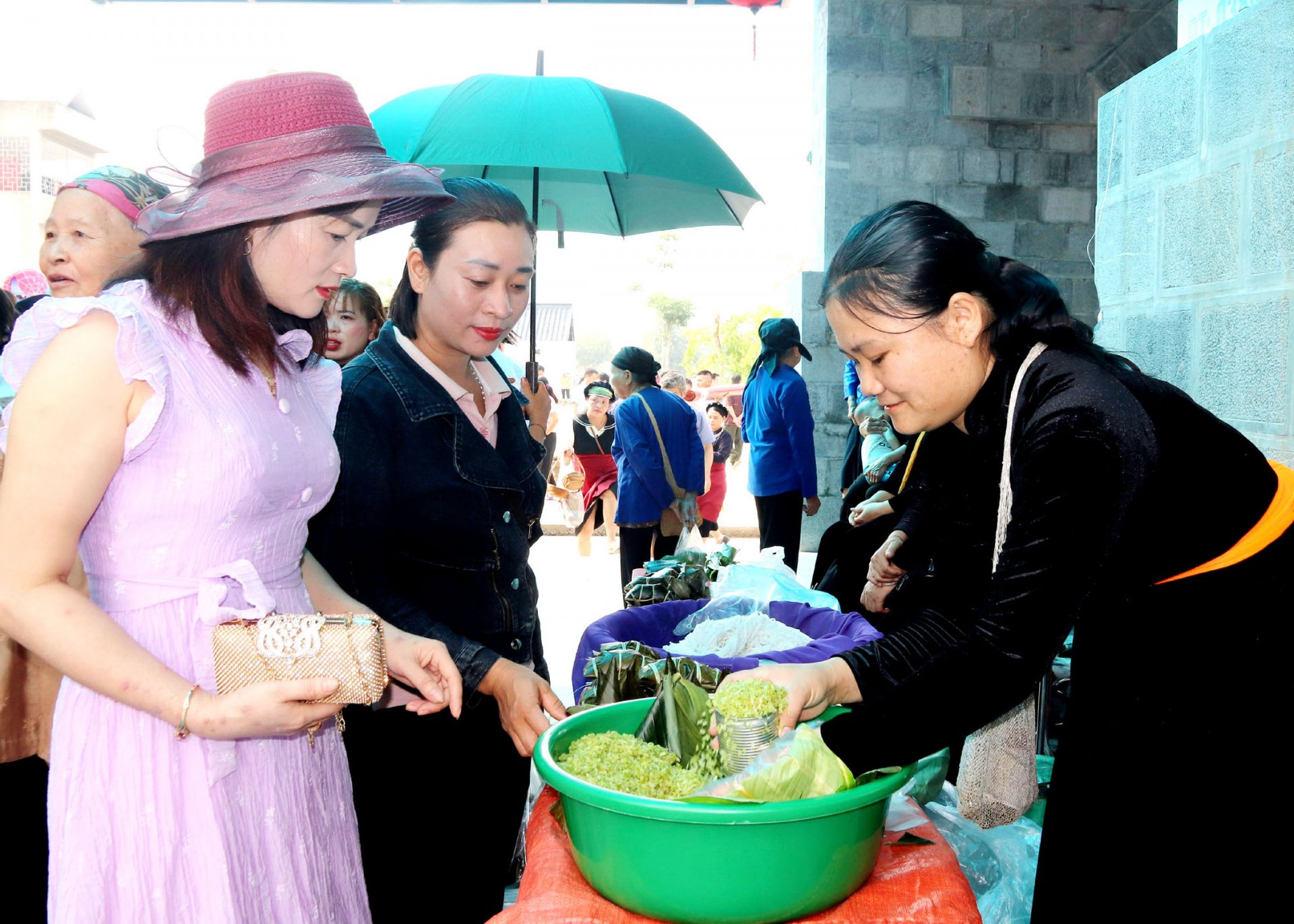














Comment (0)